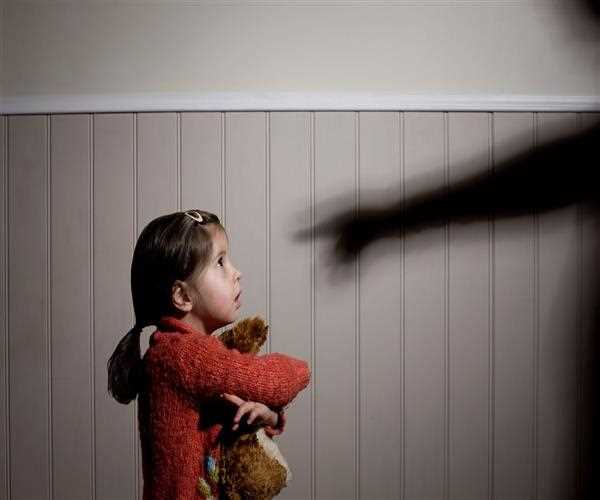
22-May-2024 , Updated on 5/22/2024 5:45:13 AM
Child Abuse and Its Effects on Mental Health
Child abuse is a serious problem that affects numerous children around the globe; moreover, it tends to result in long-lasting mental health issues. It is always assumed that children are strong and therefore abuse has no negative impact on them.
Preventing, assessing and providing support to a child who is being abused requires understanding of the impacts that abuse has.
About Reality of Child Abuse
Child abuse comes in various forms: Physical, Sexual Physical, Emotional. It can occur at home, at school, or at any other place of interaction, and most often the aggressor is someone familiar to the child. It is not just a one-time assault or molestation; it is violation of the child’s trust that can influence their perspective on life as well as their own identity.
Immediate and Long-Term Effects
The symptoms of child abuse are easy to notice, as they are immediate and may include such signs as bruises or cuts on the child’s body, or changes in the child’s behavior in general. However, the cumulative outcomes may be quite obscure but are as dangerous as the acute ones. They may experience bid problems with some symptoms of anxiety, depression, post-traumatic stress disorder (PTSD), the appearance of suicidal thoughts.
Degree of attachment and relationships
Healthy child development is greatly dependent on attachment with the caregivers and any break in this cycle will lead to harm on the child. When these relationships are characterized by abuse, children may lack ability to trust other people. They may get sticky and have problems with friends, boy/girl friends, or parents. Such mistrust may cause chronic stress and impaired ability to regulate one’s emotions in the couple.
Effects of Toxic Stress on Brain Development
Although general stress has been identified as a shared characteristic of abuse survivors, the stress triggered by abuse can be regarded as toxic because of changes in the human brain caused by the abuse. It can also affect the function of this organ of the brain involving emotions, decisions, and impulse control. Stress also negatively impacts concentration and learning thus causing academic problems and lower level of education.
Emotional and Psychological Consequences
Childhood abuse is one of the worst types of abuse since it leaves a person with emotional injuries that are almost permanent. Survivors often struggle with:
- PTSD: People experience flashbacks, recurring nightmares, and before long, even the most mundane actions are difficult.
- Depression and Anxiety: Depression with ideas of personal ineffectiveness and anxiety are among the symptoms that occur in most of the survivors.
- Dissociation: Dissociative disorder is another consequence of severe trauma, as some people can avoid the plight of real life by distancing themselves.
Risky Behavior
The study found out that survivors of abuse indulge in risky behaviors as mechanisms of coping with the traumas endured. Some of these behaviors could involve cheating, theft, destructiveness of other people’s property, and aggression through physical combat. They also might abuse sexually or use substances; often, it is the only means through which they are able to cope with trauma.
Self-Concept and Esteem
Thus, abuse has a severe effect on the role that a child has to develop in a process of their identification. Words of physical or verbal violence from the abusers bring about a feeling of worthlessness and low self-esteem and hence develop an unreal image of themselves. Various kinds of Child Abuse result in feelings of guilt in the survivors, and this makes them think that they deserved to be abused, thus decreasing their self-esteem. This weak self-esteem is manifested in their social relations and may predispose them to further abuse.
Health Problems
The physical effects of abused children on their bodies are very dire. Abuse can also cause tension that results to malnutrition of the human body and stunted growth of the brain; however, these effects can be prevented by intervention at early stages.
Here are some steps and strategies that can help survivors on their path to recovery:
- Acknowledge the Abuse: It is with some degree of credibility that we can note that anyone but especially women who have been abused in the past will require specific types to strategies to move away from that abusive situation. Relationship issues can make one develop of sorts of emotions which can be dealt with in the therapy session.
- Join Support Groups: Having other people to talk and share with reduces feelings of loneliness and helps to find some sort of meaning in what is happening.
- Practice Self-Care: Exercise, proper diet, and self-massaging are other measures that can be taken in order to take care of physical as well as psychological health.
- Express Creativity: Any kind of art including painting, prose, music, or moving can assist in facing the feelings and events in a nonverbal manner.
- Build a Support Network: It has been observed that having a support group such as friends and family can help a lot in the healing process.
Prevention and Support
The conclusion on the topic of child abuse comes with the observation that its prevention is not a one man or a woman affair but a whole community affair. The best possible solution to this disease therefore includes proper awareness and education concerning its causes, symptoms, and stages, as well as conducting early interventions.
Another aspect of prevention is improvement of support systems for such families, availability and accessibility of psychosocial assistance, and raising awareness about the subject. Therapeutic undertakings and strong community support systems should be availed to people diagnosed with this disorder as soon as possible so that they can be helped to recover.
Conclusion
Child abuse has severe implications on one’s psychological well-being and can cause permanent damage. By seeing these impacts, it becomes easier to take care of the victims and therefore try to minimize abuse. Children hope and have the right to be protected and grow in safe environments, and it is our social duty to guarantee that they are protected from any harm.

Student
An MBA in finance imparts and improves management aptitude, inventive ability, critical thinking ability, and so forth. It offers a real-time experience that fabricates a staunch career foundation for students and working professionals. It helps them to thoroughly understand the financial sector.
Join Our Newsletter
Subscribe to our newsletter to receive emails about new views posts, releases and updates.
Copyright 2010 - 2026 MindStick Software Pvt. Ltd. All Rights Reserved Privacy Policy | Terms & Conditions | Cookie Policy